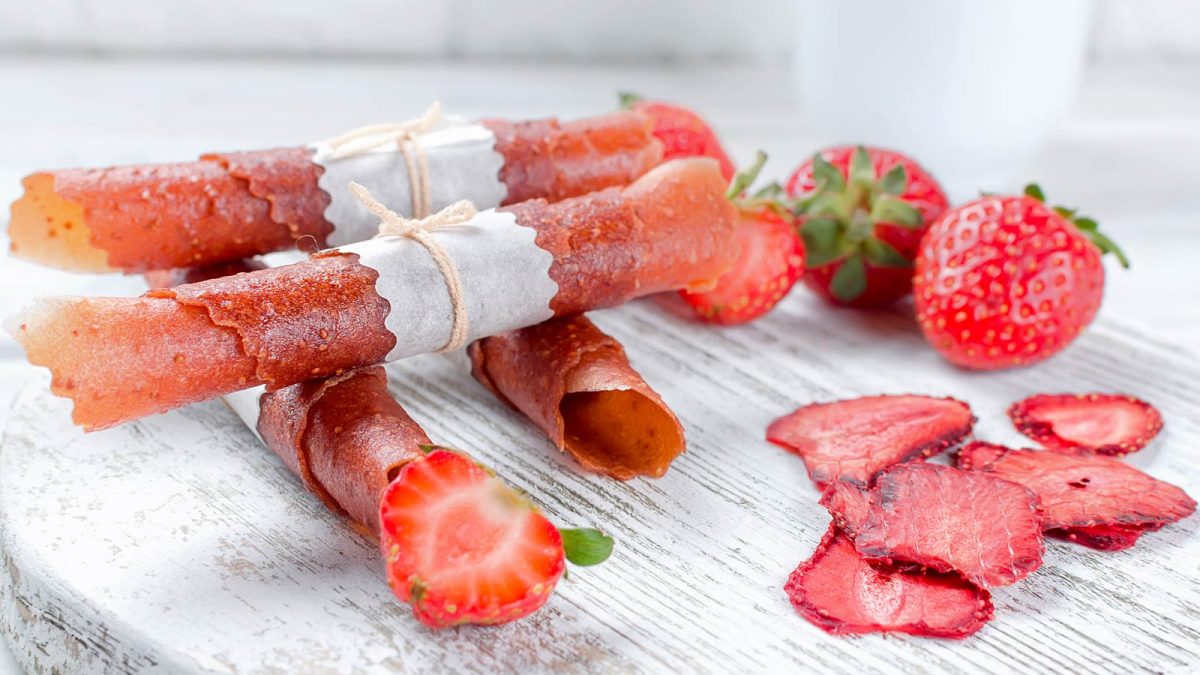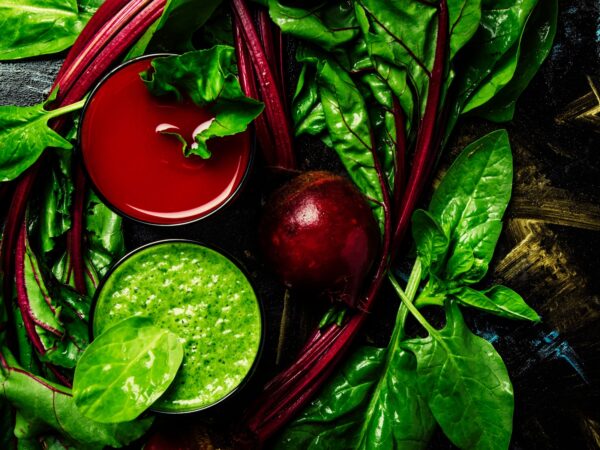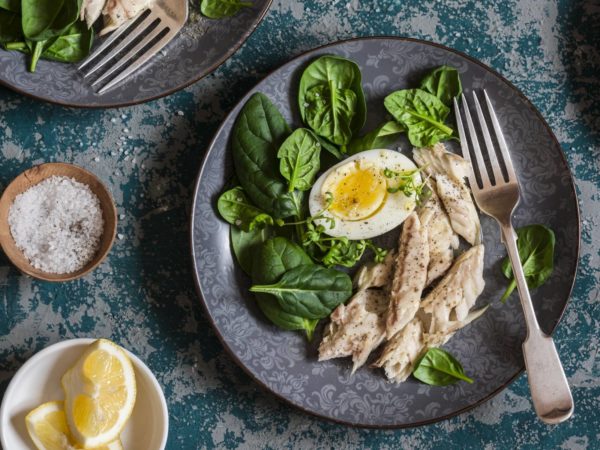Fruit Leathers: Tasty Snack or Toxic Treat
If you have kids, you probably know about the endless array of available packaged snacks. And while most parents know that “cheesy fish” crackers and electric blue drinks are unhealthy options, there’s one snack that touts itself as a way to get more servings of fruits and veggies:
Fruit leathers.
With their healthy halo and claim of “half a serving of fruit” in each “roll-up”, many parents buy into the healthy appeal of these snacks.
But the truth is, fruit leathers are not much better than candy bars when it comes to nutrition.
In fact, a single serving contains up to 14 grams of sugar, and provides no protein or healthy fat. The result is a snack that will neither satiate nor nourish your little one, and instead promote blood sugar imbalances that can set the stage for childhood diabetes or obesity.
Fruit Leathers: Tasty Snack… or Toxic Treat
Because children are still growing – and consume more pesticide residue than adults (relative to their body weight) – they are especially prone to the health risks of pesticides.
Pesticides are being linked to some of the most prevalent and serious health issues affecting our children, including:
- ADHD: One study found that children with higher levels of organophosphate pesticide metabolites in their blood were twice as likely to be diagnosed with ADHD.
- Allergies: People with high levels of dichlorophenol (a breakdown product of an herbicide) and chlorine (found in tap water) were more likely to have allergies to milk, eggs, seafood, and peanuts.
- Autism: A study published in Environmental Health Perspectives found that children were six times more likely to be diagnosed with autism if their mothers had spent their early pregnancy in homes within 500 meters of fields with the highest levels of organophosphate application, compared to those not living near agricultural fields.
More concerning still is that 94% of children tested had detectable levels of pesticides in their urine.
“Exposure is practically ubiquitous. We’re all exposed,” said Maryse Bouchard of the University of Montreal, lead author of a study on pesticides and ADHD.
But here’s the good news…
When kids switched to organically grown fruits and vegetables, their urine levels of pesticide compounds dropped to zero or close to zero, according to an Emory University study.
Low Sugar, Nutrient Rich Organic Fruit Leather Alternative
Today I’m going to share a simple recipe that will allow your kids to enjoy fruit snacks that are low in sugar, high in antioxidant nutrients, and free from pesticides and artificial ingredients.
Another benefit? These fruit snacks are far less expensive than the sub-par store bought varieties!
Just as concerning is the fact that fruit leathers are typically made with fruits that are the most contaminated with pesticides – including apples, grapes, raspberries, cherries and strawberries.
Lemon-Raspberry Gummy Fruit Snacks (Pesticide-Free and Protein-Packed)
Using organic frozen berries and pure gelatin from grass-fed cows, these simple and delicious fruit treats are quick to whip up. Experiment with a variety of berries and citrus juices to suit your little one’s (and your own!) taste.
Ingredients
- 2/3 cup organic lemon juice (fresh or Santa Cruz or Lakewood bottled)
- 1.5 cups organic frozen raspberries (try Cascadian Farm)
- 5 Tbsp. grass-fed gelatin (try Great Lakes)
- 10-15 drops organic liquid stevia (to taste)
Instructions
- Add lemon juice and raspberries to a medium saucepan. Heat over medium heat.
- Cook, stirring until simmering. Let cool slightly.
- Pour the mixture into a blender (preferably a VitaMix or Blendtec) and blend until smooth. (NOTE: Raspberry seeds contain powerful phytonutrients that are liberated with high speed blending)
- Add the gelatin and blend to fully combine. Adjust sweetness with stevia.
- Pour gelatin-berry mixture into a glass 9×9 glass dish or candy molds. Refrigerate for 45 minutes to an hour.
- Store in an airtight container in the refrigerator for up to one week.
When it comes to keeping your family healthy, making small changes like this one will pay dividends in your child’s long-term health and your peace of mind.




Leave a Reply